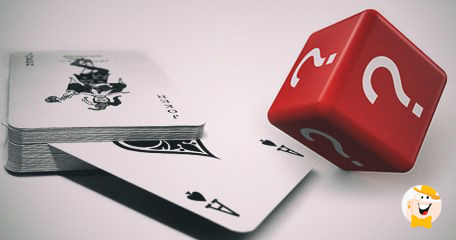
There is very little that separates a recreational player from an advantage player, but at the same time, that small gap might as well be a great chasm. The fact of the matter is that both the recreational player and the professional (or semi-professional) enjoy gambling. Some AP’s will claim that they consider casinos a largely immoral industry and simply love taking money from the casinos but do not enjoy the actual gambling at all. When I hear that, a certain fragrance seems to enter my nose that we won’t discuss right now.
Recreational players and advantage players also have games of choice that they will play. A recreational player might have certain table games that they enjoy, or maybe horse betting or a preferred few slot titles. Advantage players who specialize in one type of game or another usually do so because they enjoy those games. If they did not enjoy them, then they would not play them unless the prospect of playing them was seriously lucrative. For example, I could be a competent blackjack card counter. In fact, I think a full half of the population could. I’m just not because I find the game boring as Hell and would rather be crocheting (and I don’t crochet) after about five minutes at the blackjack table.
With that said, I do have a wide range of games that I will play and like to learn about as many slot games as I feasibly can because I enjoy beating them. As strange as it sounds, I usually do not enjoy the slot games themselves, (but there are a few I like) but I do enjoy figuring them out and I enjoy the fact that I am playing at an advantage if not the actual playing. Some are more entertaining than others. For example, I’ll always take a game with fewer free spins with strong per spin value over a game in which the player can potentially hit for hundreds of spins that are individually nearly worthless.
In one way or another, I enjoy the games, though.
If there is an advantage player who claims not actually to enjoy what he/she is doing, I am only prepared to believe that if the person makes so much money gambling that they literally could not replicate their income doing anything else. I am pretty fervent in that position because, assuming someone claims not to enjoy advantage play but could be making that money elsewhere, there has to be something that person would enjoy more or hate less.
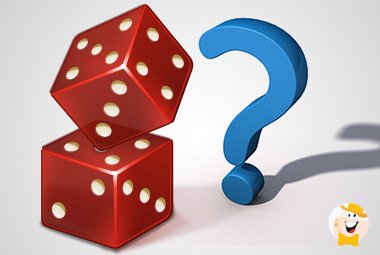
For instance, I could relocate and replicate my current income by getting back into the hotel business. Granted, if I got back into it without relocating, I would make a little bit less money. The point is, if I enjoyed the hotel business more than gambling and writing about it, then that is what I would be doing.
The fact of the matter is that a trip to the casino, at least one of the ones closest to me, is a routine thing at this point. It’s no different than going to work; it just happens to be going to a job that I like. I suppose the other major difference is that I might, “Go to the office,” and lose money that day, but that just makes it similar to being a business owner.
There is nothing glamorous or special to me about an individual trip to a casino, but there is something special about going into a casino knowing I am expected to walk out with more money than that with which I walked in. It is that expectation that keeps me going, but wouldn’t it be boring if the actual results ran at expectation ALL the time?
Why We Gamble:
Everyone who gambles does so because they enjoy the uncertainty of it in one fashion or another. The only exception to that rule would be people with no real interest in gambling who are simply going to the casino to appease someone else. The fact of the matter is that we all want to run better than expectation when we are at the casino and that is more true of recreational players playing at a disadvantage than it is of those few who successfully employ an advantage. However, when it comes to players who have a positive expectation, they still want to perform better than that.
The fact of the matter is that an advantage player approaches the ‘Long run,’ on not just individual plays, but on his overall action. The only thing that can skew overall results v. expected over a long period is a huge loss (or win) sustained by either having an unlikely huge winning session (or spin) or by risking significantly more money than one would usually be doing.
For example, if you risk $1 at a 1% advantage 1,000,000 times, then you will have an expected profit of $10,000 and will, in fact, probably come very close to that. I suppose one exception would be if you were playing something like a Video Keno Progressive that counted on you hitting 10/10, but generally, we would be talking about something with lower variance.
On the other hand, if you risk $1,000,000 at something with a 1% advantage once, then you have an expected profit of $10,000 but will either lose $1,000,000 or win whatever the amount for a win is depending on the proposition in question.
Here’s a crazy example: If I (as a casino) said that if you make one $1,000,000 craps pass line bet and lose, I will give you back $40,000, but if you win, then you get to keep the full million:
(1000000 * .4929) - ((1000000-40000) * .5071) = 6,084
That would mean an expected profit of $6,084 and, ergo, a 0.6084% advantage on the play. Of course, you’re either going to lose $960,000 or win $1,000,000 with a slight probability of losing $960,000.
That’s an extreme example, but the point is exposing a ton of money (in the form of a potential loss) all at one time or within a short period can seriously skew your results.
Advantage players will gamble for small amounts with the hope of winning large amounts. Even though an advantage player knows that he will regress to the mean (expectation) in the long run, the fun of gambling is knowing that it is not likely to happen in the short run.
Let’s pretend for a second that I have exactly $1,000,000, (I wish!) if you gave me the proposition at Craps that I outlined above with an expected profit of $6,084. The potential to win $1,000,000 cash (let’s pretend taxes are a non-consideration) or, you just hand me $3,000 and I walk, which would I take?
The gambler in me wants to double my net worth of $1,000,000 and be at an advantage doing so! However, as a practical consideration, even having a million dollars, I’m going to take the three grand that I am being offered and walk away. The simple fact of the matter is that losing $960,000 would simply be too big of a hit relative to my total amount of money, and while three grand is only adding 0.3% to my worth, the guarantee is too good to pass up.
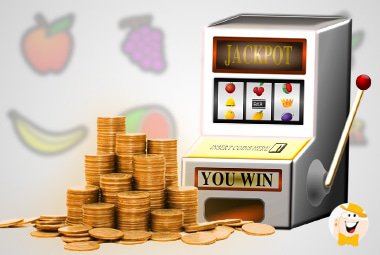
Let’s compare that to a decision that I’ll never actually be faced with, but hypothetically could be faced with. Imagine if I am at a slot machine which is a must-hit, and after making worst-case scenario assumptions, I decide that I am expected to profit $26 over the course of an hour and a half. The result is an expected profit of $17.33 per hour which is, in my opinion, good enough to play provided I have the bankroll for the play. For example, if I had an expected profit of $17.33 over 90 minutes, but I was either going to win or lose in the thousands potentially, I probably wouldn’t go for that.
It’s an interesting balance because bankroll considerations are a factor, but I want to run BETTER than expected in the short run. Let’s say I was given a proposal which would never actually happen that went like this:
A slot attendant comes over to me and confirms that the machine is worth $26, he says, “If you play this for the 90 minutes it is expected to take, regardless of what happens, we will pay you a profit of $17.33/hour for playing that amount of time. Do we have a deal?”
In that situation, I would almost definitely say, ‘No,’ because I do not want to receive the exact amount of money that my expectation is. Granted, if the slot attendant in this bizarre hypothetical scenario were to offer me $20/hour to do it ($30 for 90 minutes), then I might simply because my expectation is BETTER than it would be playing the machine.
I recognize that the value of that particular play is $26, but when I sit down, that’s not what I want to happen. What I would prefer to happen is that the must-hit pops immediately and I win $192, or whatever the amount in question is. Alternatively, I would prefer to sit down and play, the must-hit take as long (or longer) than expected, but I get on a crazy run of bonus games and good pays and end up profiting in the high hundreds of dollars if not a thousand.
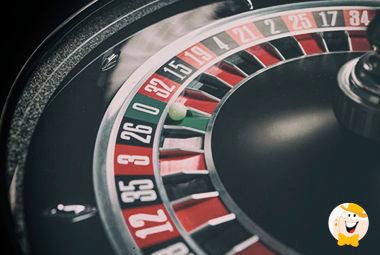
Of course, I’m working against myself this entire time because I am probably betting the minimum if there is no punishment in expected value (and there often isn’t on these types of machines) for doing so. Granted, I’m reducing the Variance because, to a certain extent, I do not want to run significantly worse than expected! To wit, I do not want to sit down at a play with an expected profit of $26 and lose $1,000 going after it! If the max bet is $4 and it could potentially take $3,200 in coin-in to guaranteed pop the must-hit, then such losses are theoretically possible. You’d have to run EXTREMELY bad, but it could happen. To endure such a tremendous loss is much less likely betting $1.00 a spin for potentially 3,200 spins.
It’s a strange balance because, on the one hand, you’re hoping to run significantly better than expectation. On the other hand, you don’t always want to take the kind of bankroll risk that would result in you being more likely to run significantly better (or worse) than that, “Should happen.”
In the long run, a player will generally approach the overall sum of his action multiplied by his average advantage expressed as a decimal. That might come by way of a 1% advantage here or a 5% advantage there, but it’s all going to come out in the end. That’s especially true for individuals who play an extremely low variance game such as card counting blackjack.
In the short-run, the expectation is simply boring. I worked at a distribution center, at one point, and made well over $17/hour. Even though I wasn’t in love with that job overall, I would rather do that thirty-six hours per week than sit at a slot machine thirty-six hours per week if all I was ever going to do was run at expectation. For example, if I were offered a position as a slot machine tester at a pay of $17.33/hour, I probably wouldn’t take that position because the job would be too boring. The only way I would take it is if it would give me inside access to information that would help me in casinos and using that information wouldn’t get me fired.
Recreational players and advantage players alike simply want to run better than expectation because it is that kind of uncertainty that makes gambling a stimulating thing to do. If I wanted certainty, then I could go work in a distribution center.
Of course, as highlighted above, that $1,000,000 Craps hand would be exciting. I’m not much of a sentimentalist, so I have to admit that having a cool million on the line would probably be more exciting than my kids being born. I mean, I love my kids, but let’s be honest here! The only problem would be that I absolutely could not take that kind of risk if all I had were a million dollars to my name. In that situation, I would be willing to take half of expectation to walk away.
I would be prepared to take $0 to walk away, but I wouldn’t say that if the person was presenting me with a counter offer. I simply couldn’t risk a million bucks like that.
There are some advantage players out there who have that kind of, ‘Crazy gamble,’ in them which I actually believe would risk everything if the advantage was sufficient enough.
What if I had a million dollars, but instead, I would get paid $2,000,000 for a win and would lose the million on a loss?
(.4929 * 2000000) - (.5071 * 1000000) = 478700
There you go, a 47.87% advantage that represents a 49.29% chance of tripling my money vs. a 50.71% chance of losing my entire million bucks.
And that...is a tough one.
When you talk about the potential for having a net worth of three million dollars, that’s retirement level money right there; I could make that work easily. I don’t know if a million dollars works if it meant never needing to work an additional job again, but I would need to do something. If I had three million and would never have to do anything again directly; I would only do things because I wanted to.
I also have a sneaking suspicion that the only thing I would, ‘Want,’ to do is live at a country club and play three rounds of golf and work out every day. I would probably also visit the beach three or four times per year.
That’s actually where we get into an economic concept that affects advantage players (and everyone else, really) called the ‘Utility,’ of money.
The way the utility of money works when it comes to a proposition like the theoretical propositions that I have highlighted here within. It is that the utility helps us determine whether or not something is worth doing. For example, when confronted with the decision to either win a million or lose 960K when I have a positive value of 6K+, the fact is that my 960K has stronger utility than would the additional million considering the advantage.
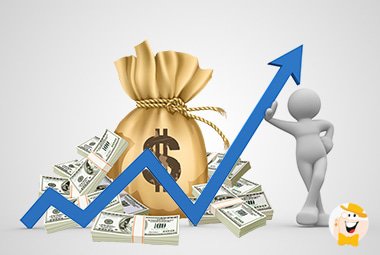
In other words, losing the 960K hurts me (on a subjective basis) more than winning the million would help me.
The subjective utility that I am assigning the money in that scenario is based on me only having a million dollars to my name, to begin with. If we imagine for a second that I had a billion dollars to my name and was offered the same proposition, lose $960,000 or win another million with every decision, and I had an expected profit of over 6K per turn, I’d play that all day! I would play that until they took it away from me! In that scenario, I would be risking 0.1% of everything that I have to win 0.1% of everything I have with an expected value of .0006084% of everything I have.
The problem is, in that scenario, I don’t even know if I would do it except out of the principle of playing at an advantage alone. If I had a billion dollars in cash or easily liquefiable assets, the fact is that it would take a pretty crazy run (one way or another) for the million bucks at a time to have any real utility to me. I could probably win or lose a hundred million bucks and I wouldn’t care, the money would cease to have any value to me. I would probably only be doing it to pass the time and because I was at an advantage.
It’s an interesting balance for an advantage player because, for most of us, money does have some utility. In many cases, we are depending on eventually meeting expectation (or at least not getting clobbered) to sustain our livelihood. At the same time, to do nothing but embark on individual plays which do not involve meaningful sums of money (in terms of utility) would be boring.
That’s why you have some high level AP’s say, “I couldn’t imagine playing at a slot machine with an expected value of $20 and you have to sit there for an hour.” The fact of the matter is that this person has a combination of two things going on. The first is that $20/hour has no utility for that particular person and the second is that the person does not enjoy playing the slot game (or learning when it is playable) for the purpose of the slot game. As an individual’s amount of money increases, the more that the utility of a fixed sum of money will decrease and vice-a-versa.
I suppose I shouldn’t say that ‘Expectation is boring,’ it is more appropriate to say that expectation can be boring. There is another difference between a recreational player and an advantage player that needs to be mentioned and it is also the difference between some AP’s and other AP’s:
Handling the Boredom:
The fact of the matter is that many of these plays are at least somewhat boring and the key to handling that boredom is to balance short-term risk with the utility of your money. In other words, you don’t want to go around losing 10% of your bankroll on a play that only has an expectation of 0.2% of your bankroll, unless you have a huge bankroll, of course. If you get more trials in at the same percentage advantage, then you reduce your variance and are more likely to fall in with expectation.
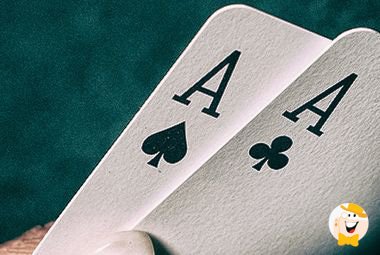
If we go back to our example of taking potentially as many as 800 spins at $4/spin, then to lose $1,000 overall, we would have to run at 68.75%. Given the fact that many slot games have a Bonus Games cycle at about 1:100 and that half (or more) of the return of many slot machine games comes from the Bonus Games, it is not entirely unreasonable to run that badly over the course of a mere 800 spins. However, if the player is only betting $1/spin, then the player would be playing a maximum of 3,200 spins and to run that poorly when playing at an expected value of over 100% would be quite surprising and unusual.
When one takes bankroll into consideration combined with the utility of the money one has already, then the person has to decide how, ‘Aggressively,’ to play such a game or whether or not to play it at all. It would throw my expected profit per hour numbers off for this example, but if I could bet $0.50/spin and found such a bet amount tolerable, then that is what I would do.
The key is, when you are dealing with the utility of money, you do not want to overbet your bankroll because you are going to be bored if you do not. Many purists would argue that you should go after every advantage you can, boring or otherwise, but if the choice is between bringing serious risk to your bankroll or leaving the play alone, then you should leave the play alone.
There’s a reason why a Blackjack card counter does not just sit down at a table with a $10,000 maximum and start whipping out a max bet every time the count goes well positive if the counter has a bankroll of $100,000. One potential reason could be heat as that table would be watched very closely, but the reason I am thinking of is that that would be a stupid decision! Granted, the expected profit is there, but you generally don’t go risking 10% of your bankroll on an initial bet over a 1% advantage. It might be a thrill, but it’s not a good idea.
Recreational players are lucky because they can, ‘Play for the thrill,’ if they decide to and they will have a story to tell no matter what happens. An individual who is not trying to play at an advantage can risk huge amounts of money on an individual proposition knowing fully well that the money risked is not going to affect him/her if it has already been budgeted for entertainment.
Advantage players are trying to have a bankroll, grow the bankroll and often to live off of their winnings...in whole or in part. Advantage players cannot jeopardize their long-term success by overbetting that bankroll out of pure boredom or out of a need for excitement. It is that need for excitement that generates a need for balance.
Conclusion:
Ultimately, an advantage player has to find a balance between the thrill of potentially winning more than expected and not putting himself/herself at risk. This is harder for some people to do than for others and it is something that I struggled with for a long time and I still get tempted by potential plays that I have no business going after given my bankroll. Fortunately, I don’t do that anymore.
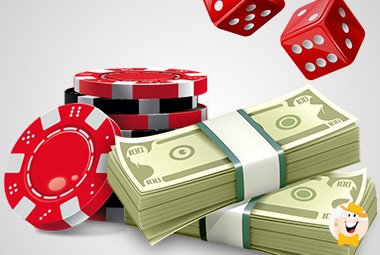
While minimizing the risk of a particular play and entering into the ‘Long-run,’ where expectation should meet actuality faster can often be boring. The fact of the matter is that many AP’s who want to have any degree of success may have to be able to deal with being bored from time to time. If an advantage player cannot handle occasionally being bored, then the advantage player should find something to do that does not bore him/her, such as enjoyable traditional employment.
When it comes to taking substantial bankroll risks as compared to ensuring you are well-enough bankrolled to be doing what you are doing, sometimes an advantage player has to ignore the, ‘Draw,’ of gambling, the potential for a huge win. I’m not going to lie and say that is an easy thing to do. If you are on a routine slot play, then you’re going to occasionally hit a pretty good bonus (relative to the amount bet) and be thinking about how cool it would have been to hit that max betting and winning 10x the amount.
A blackjack card counter or some other table game player might come off of a particularly strong session (in terms of units won) and think, “If I just tripled the maximum bet I am willing to put out there, this session would have been REALLY huge for me!”
Recreational and advantage gamblers alike tend to get lost in this kind of thoughts as the prospect of a huge win or huge session appeals to the brain’s desire for instant gratification. Whether you want to call it, ‘Instinct,’ or the, ‘Subconscious,’ it works against most gamblers and we have to have the willpower to do battle with our more base desires occasionally. The fact of the matter is that if you are immune to the ‘Gambling bug,’ then I think you are a robot.
For my part, what I do is think about the machines that I have run terribly (relative to expectation) on upon which I should have had a positive result. I think about that machine with that $26 expectation upon which I lost $100 overall betting only $0.40 at a time. I imagine that if all other things had been equal on that day, and I had been betting $4.00/spin, I would be down a grand all in the pursuit of $26 in expected profit.
Expected profits can be boring, but it’s sometimes important not to stray too far from them.









